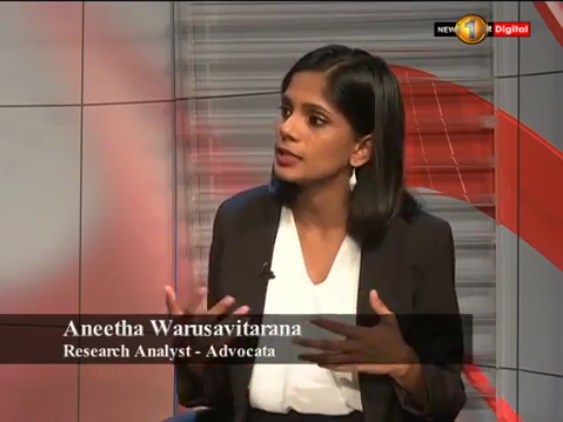First appeared in Sunday Observer, Daily Mirror and Republic Next
“State owned enterprises are a vehicle of large scale corruption in Sri Lanka that hasn’t caught public attention. Advocata’s latest report on SOEs highlights some of these abuses documented by COPE.
Adocata’s 2019 report on The State of State Owned Enterprises, highlights some of these abuses documented by COPE. Opening meetings to the public is a good first step to ensure that people understand the massive abuses by SOEs done by using taxpayer money! We urge the government to consider further reform to strengthen COPE and promote accountability of SOEs”
In an attempt to promote transparency and accountability, the hearings of the Committee on Public Enterprises (COPE) will be open to the media. The government has enforced this timely initiative in a greater attempt to promote accountability of State Owned Enterprises. The Speaker, Hon. Karu Jayasuriya MP has officially announced the ceremony to mark the opening of the COPE sessions to the media, and should be commended for this decision.
The COPE is a key committee that oversees State Owned Enterprises (SOEs) in Sri Lanka. The duty of the Committee is to examine the accounts of the Public Corporations and of any business undertaking vested in the government. Although their reports thus far have lacked comprehensiveness, they have examined a limited number of issues in a few institutions, and are a devastating critique on the state of governance.
Advocata Institute’s 2019 report, “The State of State Enterprises: Systemic Misgovernance”, highlighted the imminent need of strengthening the COPE and COPA (Committee on Public Accounts; the second financial committee whose duty is to examine the accounts showing the appropriation of the sums granted by Parliament to meet the public expenditure). The report recommended that COPE and COPA proceedings be opened to the media and the public in efforts to enhance the transparency of financial management of public institutions and hold state institutions to account.
Advocata Institute urges that further reform be considered seriously in efforts to improve structural failings and misgovernance that promote a breeding ground for corruption in Sri Lanka’s state sector. We insist that the government opens committee proceedings to non parliamentarians; specifically for technical experts, to bring in industry knowledge and scrutiny.
Key Points:
Advocata welcomes the decision to open COPE meetings to the media.
The duty of the COPE is to examine the accounts of the Public Corporations and of any business undertaking vested in the government.
Advocata Institute’s 2019 report, “The State of State Enterprises: Systemic Misgovernance”, highlighted the imminent need of strengthening the COPE and COPA.
The report recommended that COPE and COPA proceedings be open to the media and public in attempts to promote transparency and accountability.
Advocata urges the government to further consider reform to strengthen COPE and COPA.









